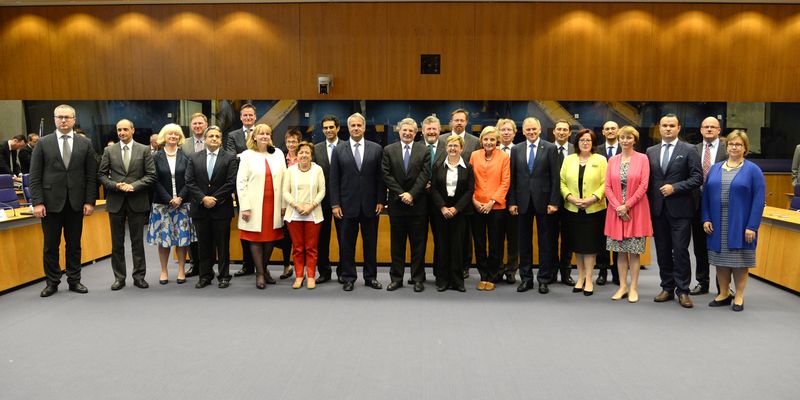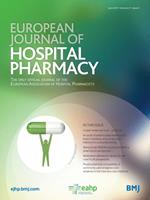EAHP EU Monitor - 24 June 2014
You can subscribe to receive the EAHP EU Monitor by email here.

Joan Peppard elected next President of EAHP
Joan Peppard has been elected as the next President of the European Association of Hospital Pharmacists (EAHP), commencing a 3 year term of office from June 2015. She will now serve one year as President Elect during the final 12 months of Dr Roberto Frontini’s Presidency of the Association.
The election took place at the General Assembly of the EAHP in Sofia. The General Assembly is the annual occasion at which the 34 member countries of EAHP meet in person to determine policy, elect the Board, scrutinise the activities of the Association and conduct other decision making activity.
More information here
EMA responds positively to EAHP’s trial transparency concerns
Following representations from EAHP and other interested stakeholders, the Management Board of the European Medicines Agency determined to improve its forthcoming policy on transparent reporting of clinical trial results.
At its 12 June 2014 Board meeting, the EMA agreed its policy on publication of clinical trial data, together with more user-friendly amendments proposed by EMA Executive Director Guido Rasi, that will not only allow the Agency to proactively publish clinical trial data that are submitted as part of marketing authorisation applications, but also give the possibility to download, save and print the trial data for academic and non-commercial research purposes. The new policy will come into effect from 1 October 2014.
More information here.
EAHP had been particularly concerned about the previously shared proposals that would have barred the possibility of printing and sharing the data, as this would make secondary analysis highly problematic.
More information here.
However, Sense About Sense, members of the academic research community, Glenis Willmott MEP and others remain concerned about the complexity of the proposed Terms of Use within the EMA policy, and the operation of redaction.
More information here.
EU Governments cooperate in historic Joint Procurement Agreement for medical countermeasures
The most recent meeting of the EU’s health ministers (the EPSCO Council) resulted in the signature of an historic ‘Joint Procurement Agreement’ to procure medical countermeasures. The agreement will enable Governments to jointly purchase medicines in case of cross-border threats to health such as pandemics.
Coming after over 3 years of negotiation, the signing ceremony was held on Friday 20 June 2014 at the end of EPSCO Council in Luxemburg. The need for such agreement came about after the 2009 H1N1 influenza pandemic, which highlighted the need to strengthen the mechanism through which EU Member States procure vaccines and medications since inevitably Member States were competing with each other for limited amounts of available vaccine, which weakened their purchasing power. Its entry into force will enable the steering committee to be established and rapidly convened, then the launch of the first invitation to tender and, in due course, the signing of the first reservation contracts for pandemic vaccines.
The Commission believes the Joint Procurement Agreement has the potential to reach beyond vaccines for pandemics however. Member States could, for example, benefit from extending the agreement to cover the purchase of medical countermeasures for other infectious diseases, such as botulism, anthrax, hepatitis B or polio.
Signing the Joint Procurement Agreement does not imply any immediate financial commitment for Member States. A financial commitment will only be necessary when they sign contracts following procurement procedures launched on the basis of the Agreement. Through the Joint Procurement Agreement, any EU country can make a proposal to others to procure medical countermeasures together.
More information here.
EJHP: Impact of medicines information services
A recently published article in the European Journal of Hospital Pharmacy examines the impact of advice provided by Medicines Information services in National Health Service hospitals across England, Scotland and Wales, on patient care and clinical outcomes, and medicines safety. Results of a questionnaire with 647 healthcare professionals found most (81%) needed medicines information advice before proceeding with their patients’ treatments and 99% used the advice in managing their patients.
Full article here.







